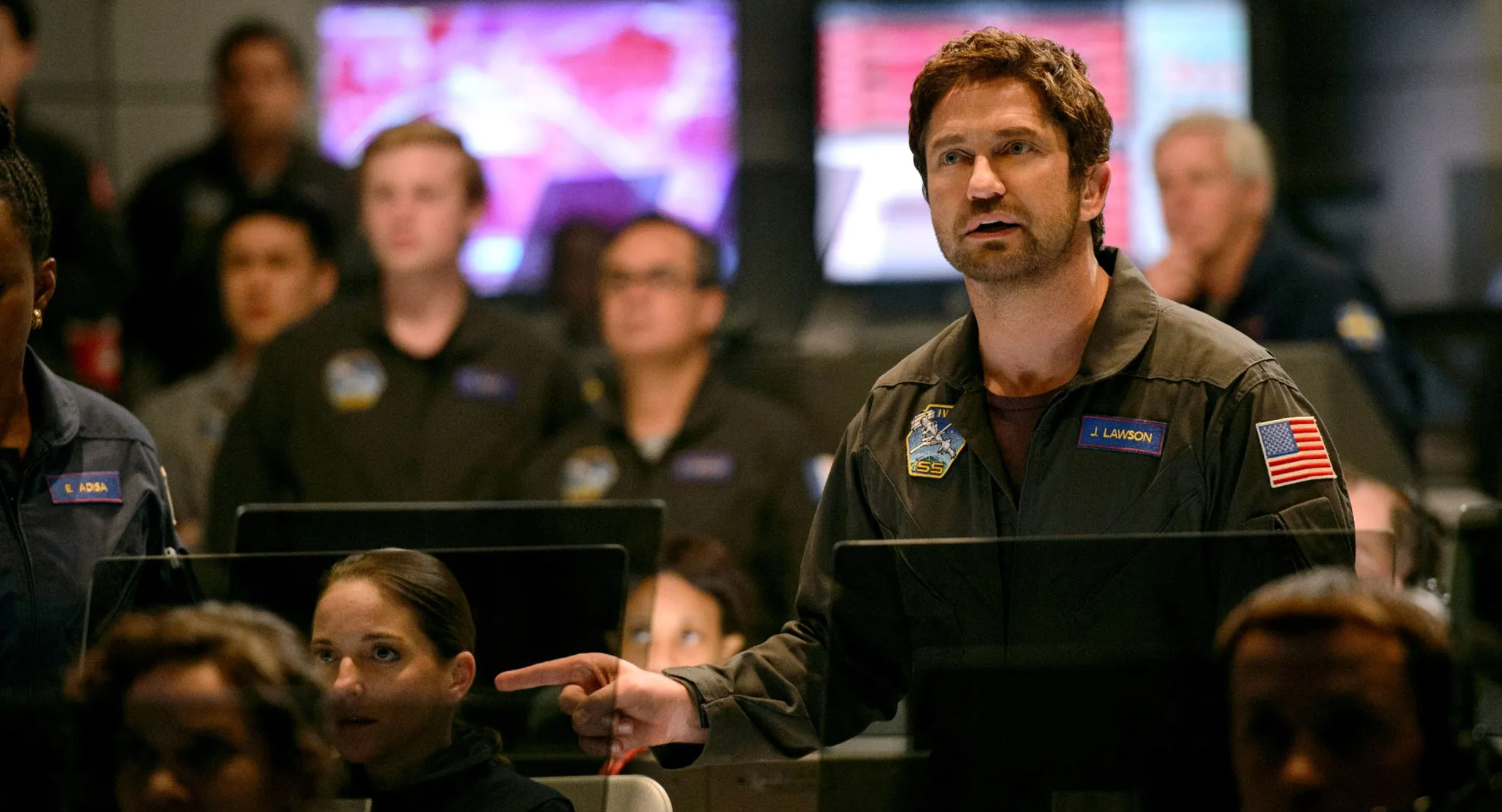Geostorm – Film Review
Published March 11, 2024

It’s no secret that there is a huge amount of natural disaster / end-of-the-world movies out there for audiences to watch and, hopefully, enjoy. One of my personal favorites in recent memory would have to be 2012, although I also get quite the kick out of Contagion, which has only gotten better with age with the rise of the COVID-19 pandemic. An already eerie and uncomfortable film is made ten times more unsettling and gripping when you realize that it has some striking parallels with what happened during the height of that time back in 2020.
But, for every absolutely terrific movie about the end of the world, we also are inevitably going to get one every so often that’s absolutely terrible and seemingly fails to be even remotely compelling or coherent. This was the case in 2017 with Dean Devlin‘s film Geostorm, which takes place in a future world where the world leaders unite to create a complex satellite system known as Dutch Boy to control and protect Earth’s climate. After the system fails, causing extreme weather patterns and natural disasters that threaten to destroy the planet, a satellite designer must go into space and fix the malfunctioning technology before it’s too late. Despite its high-concept premise and big-name stars, the film falls short in many aspects.
One of the biggest issues with the movie is its extremely muddled plot and thinly-developed characters that you won’t care about and won’t remember the names of as soon as the credits roll. It’s interesting because the first twenty-ish minutes of the movie are dedicated to getting the viewer accustomed to the leads, particularly Gerard Butler‘s Jake Lawson, a satellite designer and former ICSS commander.
But because the script by Devlin and co-writer Paul Guyot is so weak, it’s hard to feel any sort of connection to him or anyone else in the story. None of the characters are given a whole lot of development. Their relationships and motivations are also not fleshed out nearly as well as they should have been. Yes, this is an end-of-the-world movie, so of course there’s obviously going to be a bigger focus on the action set pieces and the overall spectacle on display, but that still doesn’t mean there shouldn’t have been a total lack of character development.
Another major issue with the film lies within its CGI. While the visual effects on display are commendable – it obviously takes an excruciatingly long time to even create one visual effect – the way that they’re executed here is oftentimes unconvincing and it’s usually overdone. Scenes featuring tidal waves and massive city-wide destruction are impressive in terms of the sheer scale, but they’re also incredibly artificial-looking. There was never a single moment in Geostorm in which I could have believed what I was looking at. It’s all just very processed and manufactured. As mentioned earlier, it’s clear that a lot of work went into creating these visual effects, but there’s certainly a lot left to be desired.
Additionally, the plot feels contrived and lacks coherence. The movie spends a ton of time with the characters – and doesn’t flesh them out as mentioned – but ultimately fails to deliver a story that both makes sense and is enjoyable to watch. This is something that was achieved excellently in Independence Day, for example.
The narrative here tries to balance science-fiction and action but ends up falling short on both fronts. The film presents complex science and technology, but the plot hinges on contrivances that undermine the plausibility of its story. Devlin and Guyot’s script lacks any depth or subtlety.
Another big annoyance with the film is its painfully rapid pacing. Despite a running time of nearly two hours, the film feels like it’s constantly trying to race to the finish line without ever pausing to take a breath and let the audience simply breath and take everything in. It’s like a rollercoaster ride just without the thrills and excitement that are to be expected. Significant plot developments occur without any explanation or adequate build-up. Some sequences that could have benefited from a longer screen-time feel truncated, while others seem wholly unnecessary. The film doesn’t establish the gravity of the situation with enough depth or urgency.
One of the only things about Geostorm that’s genuinely worthy of a bit of praise is Lorne Balfe’s score which feels suitably grandiose which definitely contributes to the film’s epic scale. Also, some of the action scenes are mildly enjoyable, but there was never a moment in the film that was truly awe-inspiring which was a big shame.
Geostorm is a well-intentioned but hugely flawed film that desperately tries to be an epic end-of-the-world action spectacle but fails to deliver. The film suffers from a confusing and underdeveloped plot, thinly-written characters, and borderline embarrassing CGI. While the score from Balfe is certainly impressive and some of the action sequences can be somewhat enjoyable at times, it’s simply not enough to save the movie from its vast shortcomings.
